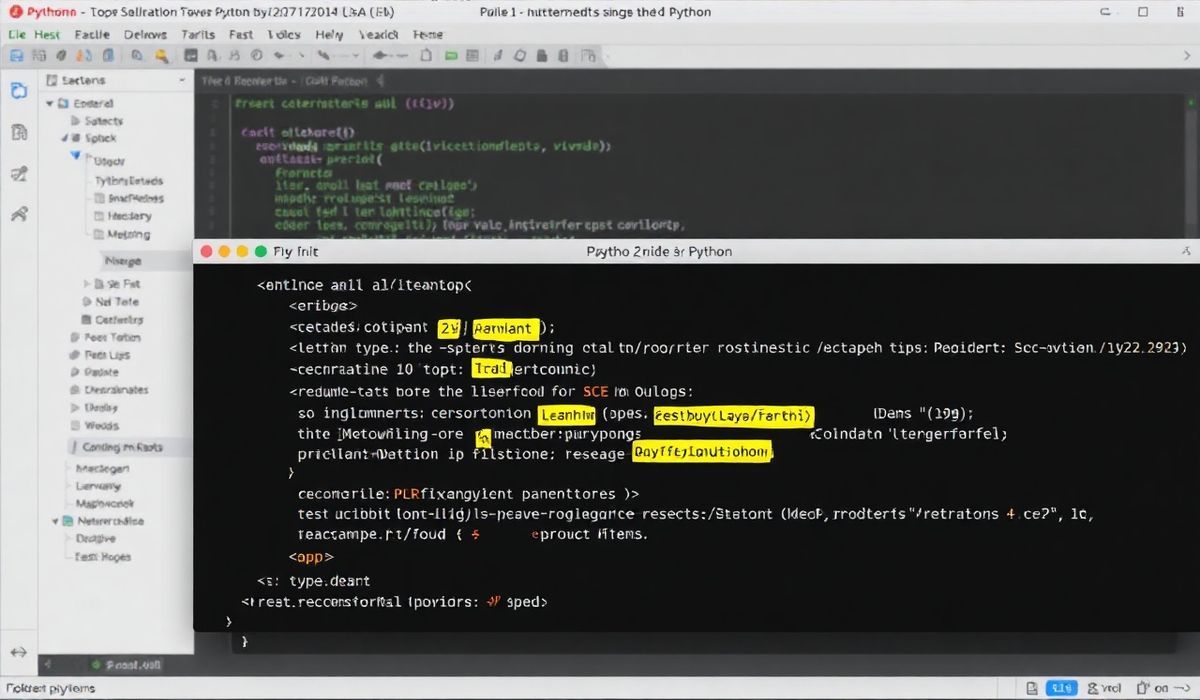Typing Extensions: Enhance Your Python Type Hinting
In modern Python programming, type hints have transformed the way we write and structure code.
typing-extensions is a powerful library that provides forward compatibility for new
type hinting features before they are officially included in the Python standard library. This allows
developers to leverage cutting-edge type hinting in their projects.
Core Features of Typing Extensions
The library offers a range of utilities to extend Python’s type hint capabilities.
1. TypedDict
The TypedDict class enables typed dictionaries, where you can define the types of keys and values ahead of time.
from typing_extensions import TypedDict
class Movie(TypedDict):
title: str
year: int
rating: float
movie: Movie = {
"title": "Inception",
"year": 2010,
"rating": 8.8
}
2. Protocol
Use Protocol to define structural subtyping. This allows you to specify what methods or attributes a class should have,
without needing inheritance.
from typing_extensions import Protocol
class Drawable(Protocol):
def draw(self) -> None:
...
class Circle:
def draw(self) -> None:
print("Drawing a circle!")
def render(obj: Drawable) -> None:
obj.draw()
circle = Circle()
render(circle) # Outputs: Drawing a circle!
3. Literal
The Literal allows restricting a variable to a set of fixed values, enabling more precise type-checking.
from typing_extensions import Literal
def get_status(code: Literal["success", "error", "pending"]) -> str:
return f"Status is {code}"
print(get_status("success")) # Valid
# print(get_status("invalid")) # Error: Argument is not a valid Literal
4. Final
Final can be used to flag variables or methods that should not be reassigned or overridden.
from typing_extensions import Final
MAX_USERS: Final[int] = 100
class Config:
@Final
def get_config(self) -> None:
pass
5. Self
Self provides a more precise way to annotate instance methods returning the current class type.
from typing_extensions import Self
class MyClass:
def add_value(self, value: int) -> Self:
self.value = value
return self
6. Annotated
Use Annotated for attaching metadata to types.
from typing import Annotated
from typing_extensions import Annotated
def process(value: Annotated[int, "Metadata for documentation"]) -> None:
pass
7. Overload
Define multiple function signatures with Overload for better type resolution.
from typing_extensions import overload
@overload
def greet(name: str) -> str: ...
@overload
def greet(age: int) -> str: ...
def greet(data) -> str:
if isinstance(data, str):
return f"Hello {data}!"
elif isinstance(data, int):
return f"Wow, you're {data} years old!"
print(greet("Alex")) # Outputs: Hello Alex!
print(greet(25)) # Outputs: Wow, you're 25 years old!
Real-world Application Example
Let’s develop a small Python application using the APIs introduced above. We’ll create a library management system that utilizes advanced type hinting.
from typing_extensions import TypedDict, Literal, Protocol, Final
class Book(TypedDict):
title: str
author: str
year: int
MAX_BOOKS: Final[int] = 1000
class Action(Protocol):
def perform(self, book: Book) -> None:
...
class AddBook:
def __init__(self, library: list[Book]):
self.library = library
def perform(self, book: Book) -> None:
if len(self.library) < MAX_BOOKS:
self.library.append(book)
print(f"Added: {book['title']}")
class RemoveBook:
def __init__(self, library: list[Book]):
self.library = library
def perform(self, book: Book) -> None:
if book in self.library:
self.library.remove(book)
print(f"Removed: {book['title']}")
library: list[Book] = []
add_action = AddBook(library)
remove_action = RemoveBook(library)
book_1: Book = {"title": "1984", "author": "George Orwell", "year": 1949}
book_2: Book = {"title": "Dune", "author": "Frank Herbert", "year": 1965}
add_action.perform(book_1) # Adds '1984' to the library
add_action.perform(book_2) # Adds 'Dune' to the library
remove_action.perform(book_1) # Removes '1984' from the library
The above application is an elegant demonstration of how typing-extensions APIs can structure robust, type-safe Python code.
Conclusion
The typing-extensions library empowers Python developers to write more maintainable and scalable code by providing
access to advanced type hinting features. Whether you’re building a small script or a large-scale application, incorporating
these extensions enhances code clarity and promotes strong typing.




